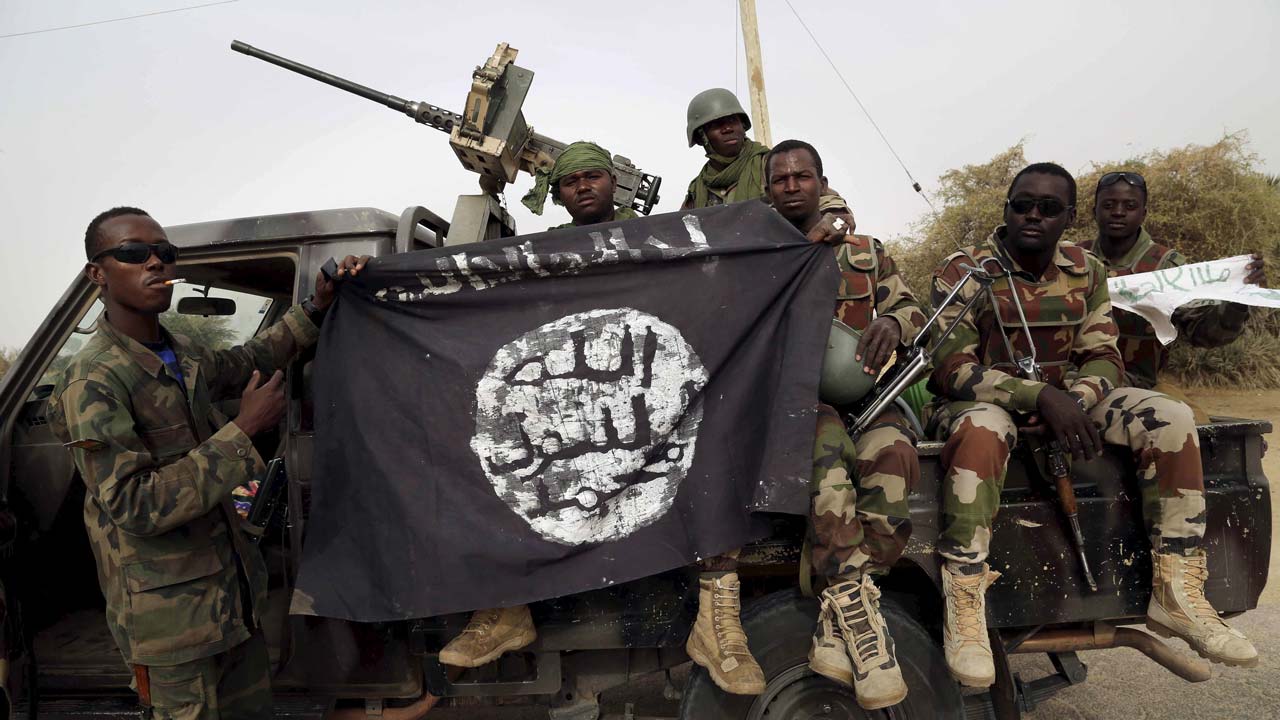The United States Africa Command has said terrorist groups including the Islamic State, Al-Qaeda, Boko Haram and Al-Shabaab, in the last five years, shut down over 9,000 schools in different African countries including Nigeria.
It said the insurgents are replacing the schools with theirs where they brainwash students with damaging ideologies.
Boko Haram in 2018 abducted over 100 schoolgirls from Government Girls Technical College, Dapchi, Yobe State. The sect had earlier in 2014 abducted over 270 schoolgirls from the Government Girls Secondary School in Chibok, Borno State.
Some of the kidnapped victims have been returned after they were sexually violated while a number of them never returned but have been conscripted as wives and allies of the sect.
The Chibok and Dapchi incidents have caused the closure of some schools in the North-East region as fears of possible attacks became palpable.
Speaking during a virtual media briefing with journalists on Tuesday, Commander of the US Special Operations Command, Africa, Maj. Gen. Dagvin Anderson, noted that terrorists were bent on hijacking the minds of the leaders of tomorrow.
Anderson said, “We have seen the violent extremist organisations, these terrorists, take advantage of these conditions over the last five years especially. Al-Qaeda has had a very deliberate campaign to exploit these seams and grievances and to expand their reach, especially into the west.
“We’ve seen that they’ve taken advantage of this also by closing schools, so they – they take away the future. They eliminate that future by shutting down these schools: over 9,000 schools across Africa shut down; 3,000 in Mali and Burkina Faso. That is very concerning to us because what does that mean for future development, for future opportunities for people that live in these regions? And what does it mean as these violent extremist organizations then replace those schools with their ideology and their teachings, which we believe is antithetical to a free and open society and prosperity.
“And then what we’ve seen them do is they’ve expanded now in Mali, but now into northern Burkina Faso, where they attacked infrastructure, then they took out local governance and security forces, and now they are using that, their presence, to control the local economy and exert their control over the population.”
Anderson, who heads the Command with a focus on reducing extremism in Africa, also warned Nigeria that the Al-Qaeda terrorist movement is gradually occupying the North-Eastern state of Borno and the entire North-West region.
The North-East and North-West parts of the country have been under intense attacks by terrorists and bandits, especially in the last few months.
Aside killing hundreds of villagers in the regions, countless bombings, amongst others, the blood-thirsty insurgents have become emboldened and unsparing, killing scores of troops, a situation that forced over 300 soldiers to resign from the Army recently.
Anderson noted, however, that the US is engaging Nigeria in the areas of intelligence and training to combat terrorism, especially in the two regions.
He said, “When it comes to Nigeria in general, Nigeria, obviously, is a critical nation to West Africa. It is huge just in its economy, in its population, and just its influence in the region. It is a critical nation and we realise that Nigeria is a lynchpin. For that to have an effect against the VEOs and to have an effect against these stressors, it really takes the Government of Nigeria to lead that effort and to build that energy to coalesce around.
“So, no nation can come in and fix that problem for Nigeria. We can assist with that – and it’s the United States can assist, the United Kingdom, other countries can come in, many countries can come and assist with that partnership – but ultimately it takes leadership from Nigeria in order for us to focus our efforts. We need to understand where Nigeria wants to focus those efforts so we can partner appropriately to have the best effect.
“We have engaged with Nigeria and continue to engage with them in intel sharing and in understanding what these violent extremists are doing, and that has been absolutely critical to their engagements up in the Borno State and into an emerging area of northwest Nigeria that we’re seeing al-Qaeda starting to make some inroads in.
“So this intelligence sharing is absolutely vital and we stay fully engaged with the Government of Nigeria to provide them an understanding of what these terrorists are doing, what Boko Haram is doing, what ISIS-West Africa is doing, and how ISIS and al-Qaeda are looking to expand further south into the littoral areas.”
The PUNCH had earlier reported that the President, Major General Muhammadu Buhari (retd.), at a meeting with service chiefs this week expressed his dissatisfaction over the security situation in the country.
Buhari, who ordered an immediate re-engineering of the entire security apparatus, reminded the heads of security agencies that his regime needed to restore the confidence of Nigerians in the area of security.
“We must bear in mind that we owe a duty to the people that elected this government and at the end of the day, without securing the nation all other things such as revamping the economy and fighting corruption cannot be addressed,” the President said.
Anderson also urged the military to do its best to earn the trust and confidence of the people.
“I believe we can engage with our civil-military support elements and talk about how to engage, how the military engages with the civilian populace. The key is the civilians need to have the trust and confidence that their military is there to protect and support them. When the military comes, they need to run to the aid of – run to the military and to their aid.
“So how do – how do we help train these militaries in that civil-military engagement? Because that’s where the terrorists look to engage. It’s very much a civilian-centric model, and they look to separate those populations from the government and from the militaries and to seek an alternative form of governance or an alternative to what that central state provides,” he added.
PUNCH




